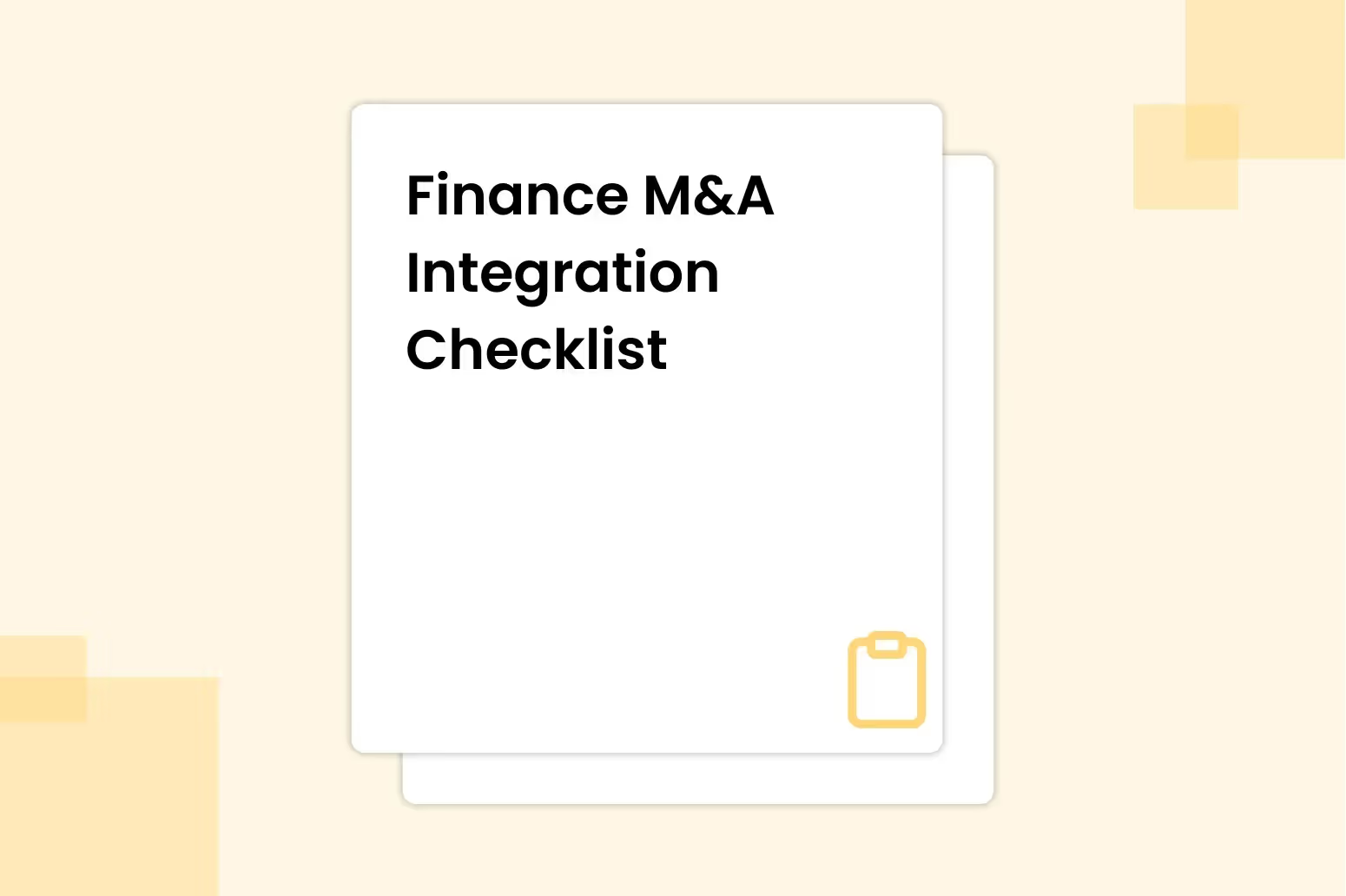Finance M&A Integration Checklist
Tailored to assist practitioners to accomplish the financial aspects of integration, this checklist provides a framework for the necessary finance-related responsibilities that should be met for successful integration. Book a playbook demo to explore — schedule a call with us and we will reach out to help you get started.
- Finance-focused integration roadmap
Map out every financial workstream—from consolidation of ledgers and systems to tax, treasury and shared services—to ensure seamless post-deal alignment. - Value-capture through finance operations
Track synergies, cost rationalisation and financial process harmonisation so the combined entity realises maximum ROI early. - Collaborative, team-aligned workflow
Bring finance, corporate development and operational leads into one unified workspace—track tasks, attach reconciliations, and monitor progress in real-time. - Audit-ready transparency
All financial approvals, comments and supporting documents are linked and timestamped for full traceability and internal or external review.
Complement your integration planning with the Master Due Diligence Checklist to ensure full diligence coverage prior to deal close, or move into buyer-facing execution with the Business Acquisition Proposal Template.





.png)
.png)
.png)
.svg)

.svg)
.avif)
